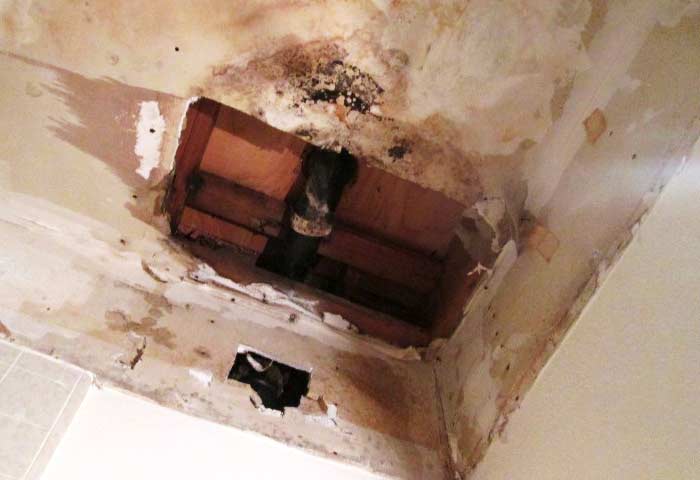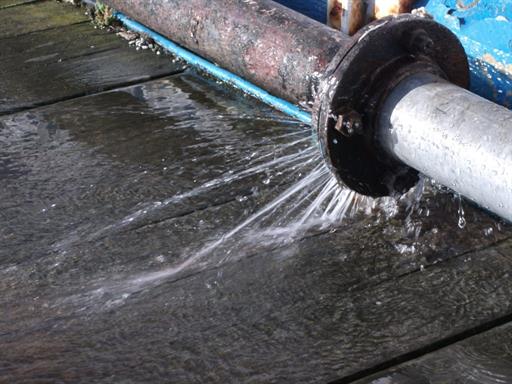Steps to Take When Facing a Burst Pipe: Closing Your Main Water Line
Steps to Take When Facing a Burst Pipe: Closing Your Main Water Line
Blog Article
This great article which follows in relation to What Do I Do If I Have A Burst Pipe In My Home? is totally enlightening. Give it a go and draw your own conclusions.

You should recognize just how to turn off your primary water line if you deal with a ruptured pipe. Don't wait for a plumbing emergency before learning just how to get this done. Besides, other than emergency leakages, you will need to switch off your major water shutoff for plumbing repairs or if you leave for a long trip. Find out more regarding it in this mini overview.
Why Must You Close the Main Line Off?
Familiarizing on your own with exactly how your mainline switches on and off can save you during an emergency. For instance, when a pipe unexpectedly bursts in your house, you'll be besieged with panic. Thus, you can easily close the valve off as well as prevent much more damage if you recognize what to do. Furthermore, closing this off ensures you don't have to manage an unexpected flooding in your house.
In addition to that, closing and also opening the valves from time to time ensures they don't get stuck. It is also the very best time for you to evaluate for corrosion or other damaged links. Moreover, make it a point to educate various other member of the family on what to do. This makes normal upkeep as well as dealing with emergencies a lot less complicated. You can potentially save on your own countless dollars in repairs.
Where is This Main Shutoff Situated?
The major water line supply can vary, so you may require to find time to determine where it is. Sadly, when your home is getting soaked as a result of a burst pipeline, you don't have the high-end of time during an emergency. Hence, you should prepare for this plumbing circumstance by learning where the valve lies.
This shutoff valve can resemble a ball valve (with a lever-type handle) or a gateway shutoff (with a circle spigot). Placement depends on the age of your house and the environment in your area. Examine the adhering to typical places:
Must This Constantly Be Turn off?
Aside from emergencies, repairs, or long holidays, you may not need to switch off the primary shutoff. For instance, if only one fixture has concerns, you can shut off the branch valve in that spot. By doing this, you can still use water in various other parts of the house. For finest outcomes, call a trusted plumber for emergencies.
What to Do When a Pipe Bursts in Your Home
A burst pipe is one of a homeowner's worst nightmares. Not knowing the signs and being unprepared for this plumbing issue can result in more water damage and clean up. Here are the warning signs of a pipe about to burst and the steps you can take if it happens.
Warning Signs for Burst Pipes
Rusty, discolored water with a bad smell Puddles under your sinks Abrupt changes in water pressure A spike in your water bill Clanging noises coming from pipes behind the walls What to Do When a Pipe Bursts
Turn off your water. The sooner you do this, the better. Shutting off your main valve will help minimize the damage to your home.
Drain the faucets. After the water has been turned off, drain the remaining water by opening your faucets. Doing so will help prevent areas from freezing and also relieve pressure within your pipe system to avoid more bursts.
Locate the burst pipe. Look for bulging ceilings, warping and other signs of where the water damage has occurred. Once you locate the pipe, you will be able to determine if it is a small crack that can be patched or a major repair that needs to be dealt with right away.
Call a professional. If you need significant repairs, contact a professional to come in as soon as possible. At Mr. Rooter Plumbing of Oneida, we offer 24/7 emergency service for your convenience.
Document the damage. If you have extensive pipe damage, be sure to take photos of the affected areas so you can document a claim with your insurance. Take close-up photos of the damage and use a measuring tape to show how high the water is. You should also take photos from different angles for a wider picture of the affected areas.
Start cleaning. After you have documented the damage, start cleaning up the water as soon as possible. The longer the water sits, the higher the chance that mold will develop.
https://www.mrrooter.com/oneida/about-us/blog/2020/june/what-to-do-when-a-pipe-bursts-in-your-home/

As an enthusiastic reader on Steps to Take When a Pipe Bursts, I imagined sharing that post was mandatory. Sharing is good. Helping people is fun. Thank-you for your time invested reading it.
Quality-driven emergency plumbing solutions. Report this page